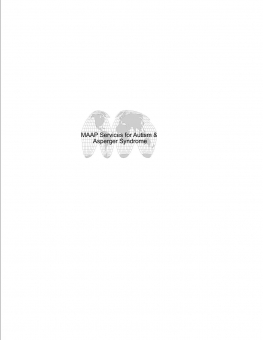- Education Topics
- Achievement Gap
- Alternative Education
- American Education Awards
- Assessment & Evaluation
- Education during COVID-19
- Education Economics
- Education Environment
- Education in the United States during COVID-19
- Education Issues
- Education Policy
- Education Psychology
- Education Scandals and Controversies
- Education Reform
- Education Theory
- Education Worldwide
- Educational Leadership
- Educational Philosophy
- Educational Research
- Educational Technology
- Federal Education Legislation
- Higher Education Worldwide
- Homeless Education
- Homeschooling in the United States
- Migrant Education
- Neglected/Deliquent Students
- Pedagogy
- Sociology of Education
- Special Needs
- National Directories
- After School Programs
- Alternative Schools
- The Arts
- At-Risk Students
- Camps
- Camp Services
- Colleges & Universities
- Counties
- Driving Schools
- Educational Businesses
- Financial Aid
- Higher Education
- International Programs
- Jewish Community Centers
- K-12 Schools
- Language Studies
- Libraries
- Organizations
- Preschools
- Professional Development
- Prom Services
- School Assemblies
- School Districts
- School Field Trips
- School Health
- School Supplies
- School Travel
- School Vendors
- Schools Worldwide
- Special Education
- Special Needs
- Study Abroad
- Teaching Abroad
- Volunteer Programs
- Youth Sports
- For Schools
- Academic Standards
- Assembly Programs
- Blue Ribbon Schools Program
- Educational Accreditation
- Educational Television Channels
- Education in the United States
- History of Education in the United States
- Reading Education in the U.S.
- School Grades
- School Meal Programs
- School Types
- School Uniforms
- Special Education in the United States
- Systems of Formal Education
- U.S. Education Legislation
- For Teachers
- Academic Dishonesty
- Childcare State Licensing Requirements
- Classroom Management
- Education Subjects
- Educational Practices
- Interdisciplinary Teaching
- Job and Interview Tips
- Lesson Plans | Grades
- Professional Development
- State Curriculum Standards
- Substitute Teaching
- Teacher Salary
- Teacher Training Programs
- Teaching Methods
- Training and Certification
- For Students
- Academic Competitions
- Admissions Testing
- At-Risk Students
- Career Planning
- College Admissions
- Drivers License
- Educational Programs
- Educational Television
- High School Dropouts
- Higher Education
- School Health
- Senior Proms
- Sex Education
- Standardized Testing
- Student Financial Aid
- Student Television Stations
- Summer Learning Loss
MAAP Services for Autism and Asperger Syndrome

Basic Information
Address: P.O. Box 524
Crown Point, IN 46308
Phone Number: 219-662-1311
Fax Number: 219-662-0638
Email: info@maapservices.org
Action Shots
* There are currently no photos associated with this listing.
Additional Information
President: Susan Moreno
Service Description: information & referrals
Mission Statement:
MISSION STATEMENT
MAAP Services for Autism and Asperger Syndrome is a worldwide nonprofit organization providing information, networking, referrals and printed materials for families, challenged individuals and professionals concerned with the autism spectrum. Founded in 1984, MAAP adheres to the basic principal that all individuals with autism spectrum challenges have the ability to learn, grow, and enjoy a good quality of life.
Membership Fee: None
Eligibility Requirements: None
Area Served: International
Hours of Operation/Schedule: Monday through Thursday 9 a.m. to 3 p.m. Central Standard Time
Services Offered:
Information, Networking, Referrals, Printed Materials, Newsletter
Information, Networking, Referrals, Printed Materials, Newsletter
Events:
Annual Conference and Workshops
Conferences/Speakers: October 10th & 11th, 2009, Kansas City, MO
Presenters: Brenda Smith Myles, Cathy Pratt, Gary Mesibov, Stephen Shore, Brian King, Julie Donnelly, Judy Endow, Sherry Moyer, Edna Smith, Reed Smith, Kristi Sakai and many more
Fundraisers: Sale of Note Cards and Postcards designed by Peter Myers
History:
A BRIEF HISTORY OF THE MAAP
MAAP Services was started in 1984 by Susan Moreno. Susan had met with 24 other parents of more advanced individuals with autism, Asperger’s syndrome, or pervasive developmental disorder, at the 1982 annual conference of the Autism Society of America (then known as the National Society of Autistic Children) in Omaha, Nebraska. At that time, all 25 parents agreed to share their names, addresses, phone numbers and information about their challenged loved ones with one another in hopes of corresponding about their common problems, advice, etc. Basically, no sort of that occurred for two years. Then in June of 1984, Susan contacted all the parents on that first list and asked if they would like to start sharing information and concerns with one another through a newsletter. All parents replied positively, and The MAAP newsletter (then called “The Residual Autism Newsletter” in keeping with the terminology of that time) was born. Susan volunteered to type, photocopy, and mail out the newsletter at her own expense. She continued to absorb all costs until 1987, when the mailing list had grown to over 400 families. At that time, she began charging enough to cover the costs of printing and mailing The MAAP.
Now The MAAP has reached over 10,000 families of more advanced individuals with autism, Asperger’s syndrome, and pervasive developmental disorder (PDD/NOS) and hundreds of professionals. The MAAP is sent throughout the United States and 56 other countries. The MAAP is now incorporated as MAAP Services, Inc. and does business as MAAP Services for Autism and Asperger Syndrome. It is a non-profit (501-C-3) corporation. The federal I.D. number for MAAP Services, Inc. is 35-1790246. MAAP Services is currently funded by the individual contributions of parents, professionals, private foundations, and philanthropic organizations. All donations are used for the purposes of producing and mailing The MAAP (our quarterly newsletter) and informing parents, professionals, and the general public about more advanced individuals with any of the three “Maap” diagnoses. This encompasses part time help to answer the average of 70 letters/week and phone and office supply costs.
It is the policy of MAAP Services to keep confidential all personally identifying information given by parents about themselves and their challenged loved ones unless specific consent is received from the individual parents to release such information. MAAP Services does not exclude any individual or family on the basis of the functioning level of their loved one.

